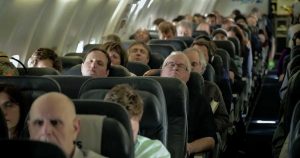Artist and talented producer David Osmond took over his love of music from his incredibly famous father, Alan Osmond. But he and his dad have another thing in common: They both have been diagnosed with multiple sclerosis (MS), a devastating and often unpredictable disease that affects the central nervous system.
MS frequently comes with symptoms such as fatigue, trouble with walking, numbness or tingling, weakness, vision problems and pain, according to the National Multiple Sclerosis Society.
“I remember as a kid when my dad told us that he had something called MS,” David says. “We saw him start to decline physically.” David says his father started tripping and falling onstage as his disease progressed. “It was hard to see,” he states.
MS has a number of causes, some of which are infectious disease, immunologic factors, environmental factors and genetics, according to the National MS Society.
Nevertheless, David says, “the thought never really crossed my mind that I might have MS or that it might be genetic.”
He first began developing symptoms at the age of 26 and was officially diagnosed with the disease later that year. “I took my shoes off and I turned to my girlfriend. I said, ‘My feet feel like they’re being run over by a steamroller,’” David recalls. “Within a few weeks, that crushing feeling progressed up my legs. It was all the way up to my chest within a few months.”
At one point in time, David Osmond had to use a wheelchair because of his MS symptoms.
Soon, David was in a wheelchair, which he stayed in even as he proposed to his now-wife. “She said, ‘Yes, in sickness and in health,’” David states. “Her strength has helped me so much.”
David was able to walk once more and is not only currently on tour with his famous aunt, Marie Osmond, and uncles Merrill and Jay, but his band, The Osmond Chapman Orchestra, is also publishing an album later this year.
However, he is not completely symptom-free. “I’ll be honest, right now I’m in a massive amount of pain,” David shares. “And it’s all over the place, but I don’t dare complain about it.”
Getting his diagnosis made David concerned about his trajectory, and in the moment, he questioned whether he would ever be able to walk again. “I hope to encourage people who are going through a struggle just to know that you’re not alone,” David says. “There are people who know how you feel that are behind you and fighting for you. Never give up.”





